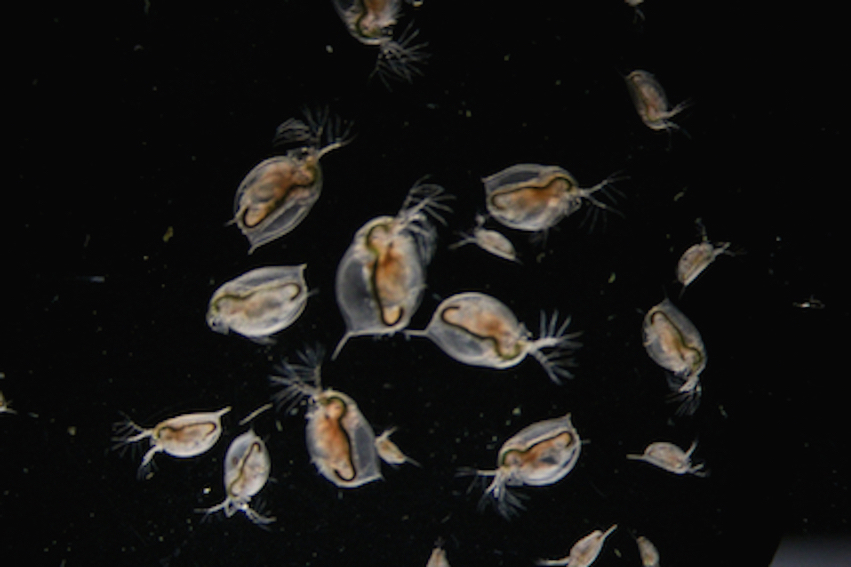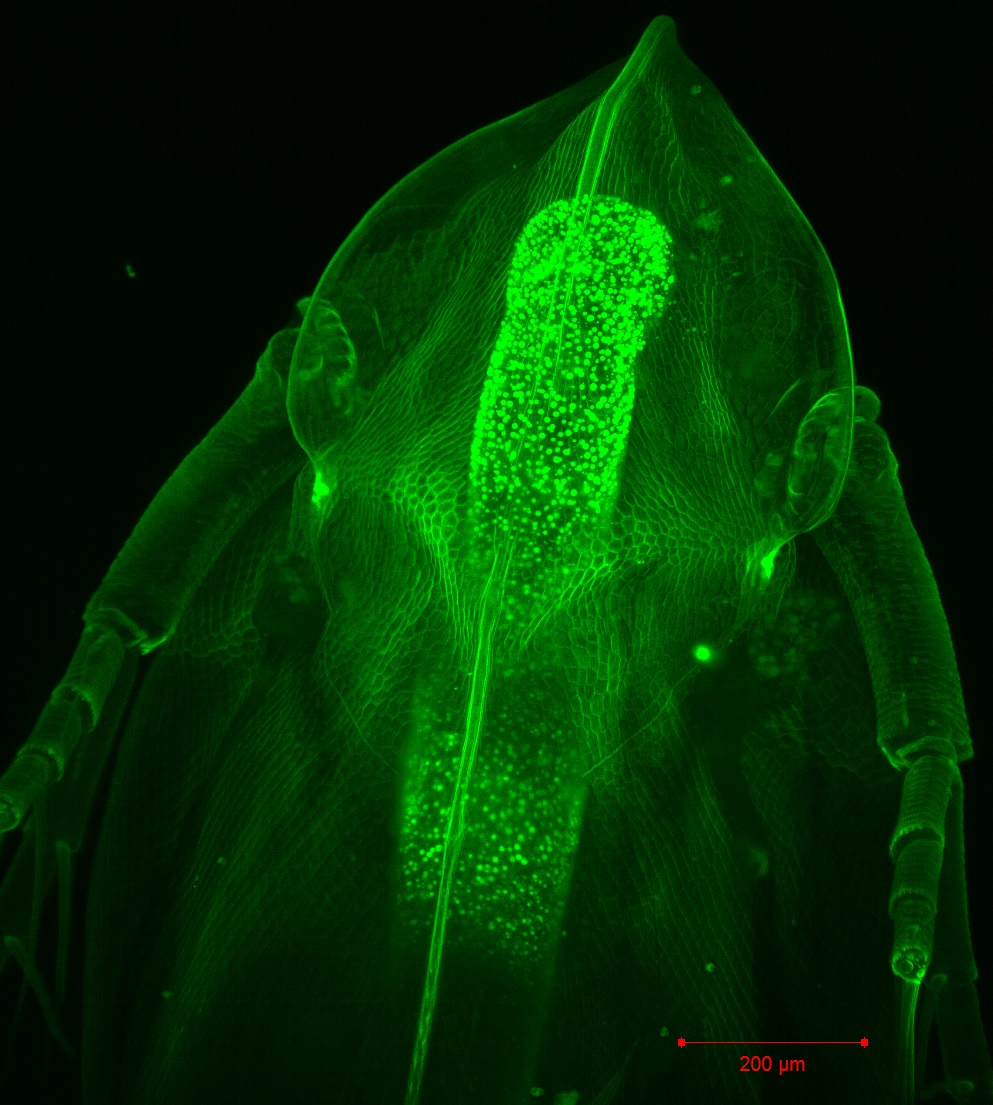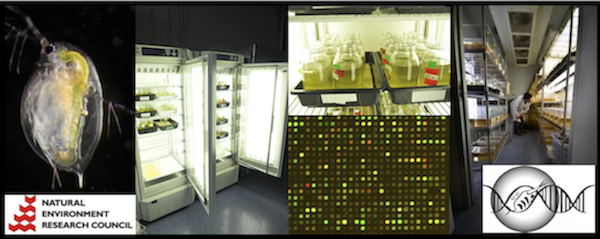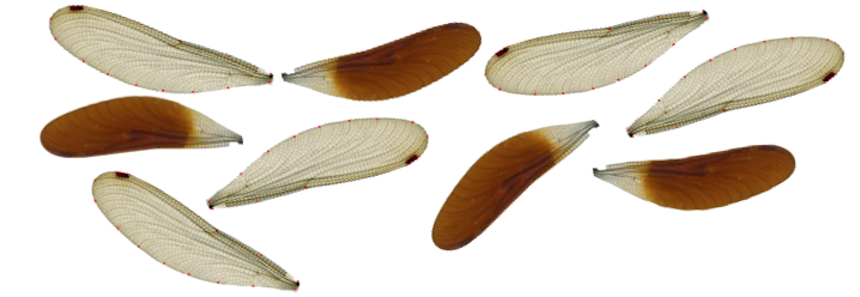1. Non-genetic inheritance and adaptation to novel anthropogenic stressors
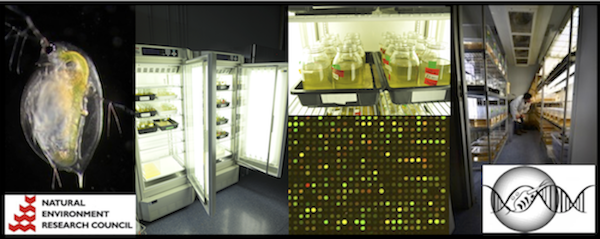

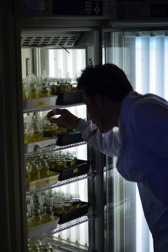
The main aim of this NERC funded project is to test the hypothesis that environment induced non-genetic inheritance plays a role in allowing populations to adapt to novel anthropogenic stressors.
We are exploiting Daphnia pulex’s status as an eco-toxicology model organism and its clonal mode of reproduction to enable the partitioning of D. pulex’s responses to pollutants into genetic, epigenetic, and parental effect components. So far we have demonstrated that exposure to novel stressors in a single generation does induce non-genetic inheritance that persists in subsequent generations. However, the nature and duration of the effect depends upon the pollutant used and the genotype exposed. We used microarrays, micro RNA's and bisulphite sequencing to determine whether the NGI observed results from epigenetic modification of the genome, and if so, whether these effects are pollutant and clone specific or not. In the final part of the grant we used microcosm competition trials to test the hypothesis that NGI can alter ecological and evolutionary dynamics. This work is currently been written up for publication.
Co-investigators:
Prof. Steve Paterson (Liverpool)
Dr Daimark Bennett (Liverpool)
2. Non-genetic inheritance and rates of senescence
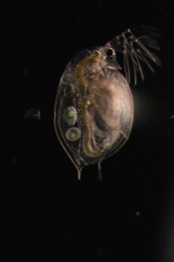
We are investigating the effect that maternal age has on the growth and maturation decisions, life history, lifespan and rates of senescence of offspring Daphnia pulex clones collected from different populations. Data collected so far suggests that maternal age effects have dramatic effects on offspring life-histories and rates of aging and these effects can accumulate across generations. However, the magnitude of the effects differ between clones, suggesting that trait inheritance is ultimately derived from an interaction between genetic and non-genetic inheritance.
See here for our recent paper on this work.
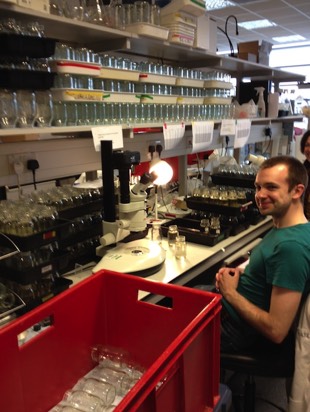
Chris Shirley who completed an MRes in the lab working on this project (which involved a lot of jars!)
